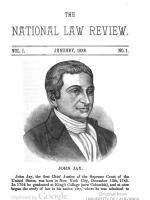To stand out online, attorneys need to make the shift to writing for a digital platform. This can be a daunting challenge for an attorney who has written thousands of documents in their career, but not necessarily for legal consumers in an online environment. To help with the transition, it’s helpful to understand the goals of online legal articles: 1) to promote your firm and its’ attorneys as experts and 2) to connect with prospective clients when they may be looking for your expertise. Here are five quick formatting suggestions that help attorneys maximize readership of their online articles:
1.) Pick a Topic That’s Trending in the Media
Legal consumers look for content online in order to address situations currently confronting them and to proactively manage risks. As court decisions and legislation are changing daily, writing on current news will ensure that you are choosing a “hot topic.” Generally, it is important to write within a few days of the decision to maximize readers. If you are covering a topic that’s older, make sure you include detailed analysis and/or helpful practice tips. Additionally, writing an objective overview increases your chances of being picked up as a source by mainstream media.
2.)Title and Sub-Headings: Short and Sweet Legal Marketing
The most valuable and visible aspect of an online article is the title, so writing a concise and informative title is critical. When a reader is scanning through headlines, it is the first insight into what the article is about. It is best to keep titles under 15 words to keep interest and clarity. Additionally, when marketing your article through social media venues, posts are limited to 140 Characters which is roughly a maximum of 20 words.
From a web “searchability” aspect, a title should also include important keywords that will ensure that your article is ranked high on a search page. These keywords should classify which area of law the article is about and who it is about. Think to yourself, if I wanted to search about this subject, which keywords would I use? Lastly, sub-headings are a great way to double-expose keywords and organize the article. Search engines will use keywords in the sub-headings to determine the compatibility for the requested search.
3.) Intro Paragraph: A Brief Overview
The introduction paragraph for your online legal article should be roughly five sentences long and is the first opportunity to catch the reader. This paragraph should be a brief overview of the article and obtain the essence of what the article is about. Most readers will use this to scan the article for the information they are looking for. From a website formatting side, the intro paragraph is usually the “teaser text” listed directly below a title and is the second most visible part of an article.
4.) Keywords: Choose Wisely and Use Them Often
When readers use a search engine, a majority will only look at the search results listed on the first page. To increase your chances of becoming a top ranking article in the search list, keywords in the title and throughout the article are imperative. The search engine will rank articles based on compatibility with the words entered in the search box and how prevalent those words are in the article. As a rule of thumb, make sure to use keywords from the title in every paragraph in your online legal article. This may seem repetitive, but it will show the search engine what your article is about, and that it is not simply mentioning it as a bythought.
5.) Article Length: Shorter is Better
After a reader decides to commit to a legal article, the chances of them reading every word will dwindle the longer your article is. On average, a vast majority of readers spend 30 seconds on a page. By keeping your article around 500 words, you will increase the chances of a reader finishing your article. Additionally, most readers do not want to have to scroll down to read a whole article. Another reason to keep it short is that, on average, a website page contains direct visibility of 500-700 words before a reader needs to scroll down.



 i
i


